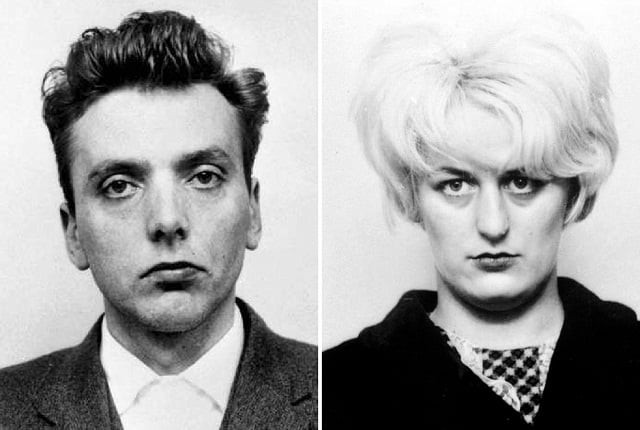Bittersweet reaction to death of Britain's notorious 'Moors murderer'
Ian Brady and his partner Myra Hindley had tortured and murdered five children between July 1963 and October 1965

A combination of handout pictures created in London shows undated police handout photographs released by Greater Manchester Police of 'Moors murderers' Ian Brady and Myra Hindley. Brady has died in high-security hospital at the age of 79, a spokesperson for the NHS trust in Merseyside said. PHOTO: AFP
The 79-year-old, who died on Monday, and his partner, Myra Hindley, had tortured and murdered five children between July 1963 and October 1965.
The brutality of the crimes - which in several cases included sexual assault - and the role of a woman in luring innocent young children to their deaths, make it one of Britain's most notorious cases.
The brother of 12-year-old John Kilbride, who was strangled after Hindley lured him away from a market in November 1963, said "good riddance" to Brady but conceded his death would not help ease the pain.
Lahore’s serial killer ‘wanted to teach gays a lesson’
"It's a lot to take in. It's been years and years of anguish and pain for us and the families of the victims," Terry Kilbride, 62, told The Sun.
"But nothing will change. He's dead but we will have to still live with the nightmare that he left behind.
"He's ruined our lives all these years and he'll still ruin it even though he's gone. I feel numb."
Four of Hindley and Brady's victims were buried on Saddleworth Moor, a national park near Manchester in central England, although the body of 12-year-old Keith Bennett has never been found.
The pair were jailed in 1966 for the murders of John Kilbride, Lesley Ann Downey, 10, and Edward Evans, 17.
Years later, they confessed to Bennett's murder and that of 16-year-old Pauline Reade.
But Brady never expressed remorse for the killings, and the judge in his trial said both he and Hindley were "evil beyond belief". Hindley died in prison in 2002.
Brady had been held in a high security hospital near Liverpool in northwest England. He was reportedly receiving palliative care for emphysema.
"We can confirm a 79-year-old patient in long-term care at Ashworth High Secure Hospital has died after becoming physically unwell," a spokesperson for the local health service told AFP late Monday.
"Monster Brady is dead", headlined The Sun, while the Daily Mirror splashed: "Burn in Hell Brady".
Kilbride also expressed his sorrow for the family of Keith Bennett, who disappeared on June 16, 1964.
Rawalpindi police arrest man involved in serial stabbings of women
Brady and Hindley took police back to the moor to look for Bennett's grave, but it was never found.
Police said Tuesday they would keep the case open. Terry West, the brother of Lesley Ann Downey, the youngest victim, told MailOnline: "We've been waiting for this day for such a long time."
Downey was lured from a fairground by Hindley on December 26, 1964, sexually abused and tortured.
A harrowing recording of her final moments, when she pleaded for her life, helped cement Brady's reputation after it was played in court.
West said he too felt for Keith Bennett's family, saying: "This probably means they'll never know where his body was buried."
"He's taken it to the grave. There's still one poor kiddie up there on the Moors," he added
The body of Pauline Reade, who vanished on her way to a disco in July 1963, was found in 1987. Her throat was cut and she was still in her party dress.
Hindley and Brady were caught after involving Hindley's brother-in-law David Smith in the murder of Edward Evans in October 1965.
Smith was forced to watch as Brady attacked the 17-year-old with an axe, but fled and called the police.



















COMMENTS
Comments are moderated and generally will be posted if they are on-topic and not abusive.
For more information, please see our Comments FAQ